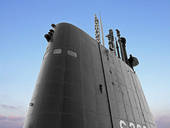U. S. Navy Blue Angles
Top Gun, the movie and the Blue Angels are where many Americans get their image of the U.S. Navy life for those who volunteer to serve at sea. The movie, The Hunt For Red October is where many Americans first saw submarine life too. These jobs are not all easily transferable to a civilian counterpart. For those that are, many American citizens find the jobs to be worthy!
A recent Pew Research Center survey asked Americans which occupations contribute the most to society? Interestingly enough, the top of the list was the U.S. Military! As a retired USN member, I am glad the perceptions by the public are still positive.
Contrast this with the clergy at 37% or lawyers at 18% viewed as contributing to a lot to society and the military looks pretty good after all.
Teachers were second on this poll in rank with 72% saying teachers contribute “a lot” to society, right under the 78% the military received. I find it interesting that the two top of the list occupations are famous for suppressed wages over the last few decades. Medical doctors, Scientists and engineers rounded out the top 5 list of occupations that are seen by the public as contributing to society.
The bottom 5 in this poll were clergy, artists, journalists, business executives, and lawyers. That is a very diverse group of occupations to be seen by the public in such a negative way.
Helo’s fly off U. S. Navy ship
The United States Navy in particular, but the U.S. Military over all thrives on data, massive amounts of it.
On numerous ships entry ways during the 80′s and 90′s the saying, “In God I Trust, All Others Bring Data” could be read. The data is not just radar or sonar values and images on a screen, but all electronic emissions that can be detected. Powerful computers analyse the many electronic emissions on ships, planes and also on submarines. Today’s U.S. Navy thrives on data more than ever before.
The poll listed earlier was also full of data. But this data is a softer sort of data, it is public opinions which, unlike the tracking signature of an enemy submarine can change as fast as the wind. This kind of data is sorted by social scientists rather than an engineer with a digital readout, and it is constantly in a state of flux.
The way to deal with data on public opinions is to repeat the questions over time, to seek the questions within other people’s surveys, or a combination of the two along with detailed person to person surveys. This pattern helps to screen out the “noise” which is often picked up and often tries to mask the real value of the message.
In this case, the poll was a reference to the 2009 poll, with the top 5 occupations the public sees as most contributing to society all reflecting a decline in the amount of people who agreed with the latest poll. The U. S. Military went from 84% in 2009 to 78% in 2013. The other 4 top listed occupations also saw drops but the margin of difference was not as great.
U.S. Navy Submarine Service cap, with dolphins insignia
So the U.S. Military can be happy they are seen by American’s as a worthy occupation, but less so than in 2009. Perceptions of the military by the public vary not only by region but also by social status and even by education. This is the nature of soft data that reflects opinions.
When a military vet leaves the service the choice to stay in a military area is crucial to his or her job prospects. Special security clearances aside, the choice of staying in an area of high military presence can work against many job opportunities. The is particularly true for the enlisted ranks.
Outside of defense work, advanced concepts technology seldom translates into job prospects
When a hiring manager knows the applicant was enlisted and is familiar with the background that characteristic implies, the mental limits which are automatically placed on the applicant in the interview work against the hard chargers who want to break out of their old patterns. They are already cataloged and thus limited before they can even try to articulate their potential.
U.S. Submarine, top portion called the sail.
Many civilians can’t conceive that any senior enlisted were managers, even if the job description justifies that title and the job applicant has the educational requirements as well. They only see Military Officers as managers!
U.S. Submarine at sea
In many cases if the applicant is retired military, the interview process will mention that the compensation package will be dropped accordingly, supposedly making the applicant more likely to go further in the hiring process many of the interviewers will claim. This routine tactic is often used to separate those who can be forced to comply with those who are still independent enough to not like being treated like a second class citizen. Those who object are simply not selected.
Only officers can fly in the U.S. Military
This is even more true of those military enlisted who obtain four year degrees, and worse yet for those who dare to obtain a Masters degree while they are in the service. Time and again the interviewer for positions that relate to the enlisted occupation find little or no value in the applicants education, often openly admitting to the applicant that the degrees are seen negatively in the interview, claiming they are now over qualified, whatever that means. Unfortunately only very high status institutions granting degrees seem to impress most hiring managers, state schools don’t seem to impress them the slightest bit.
In another recent poll by the Society for Human Resource Management showed that recent college grads are not viewed by the hiring managers in a real positive light.
They cite a lack of proficiency in English grammar or spelling as well as speaking. They also lament the lack of “professionalism” or “work ethic” in the recent grads. Nearly half of the respondents said they detected a lack of business acumen.
This would beg the question that if the recent college grads are seen as lacking a work ethic, something that most successful military members find to be habits by the time they decide to leave the military, then it would seem this makes for a very effective transition for hiring managers, right?
Hire the ambitious enlisted leaving the military who have managed to get their education and the best of both worlds should emerge, right? I wish it were that easy.
It is easy to find data showing that those leaving the military are not being hired at the rate of their age equivalent civilian counter parts with a degree or without a degree. The public might see the military as contributing to society but the hiring managers don’t see the same value in their hiring practices for those leaving the military, with a degree or without.
Military officers leaving the service fair far better on all fronts than enlisted.
All U.S. Military Officers have at least an undergraduate degree in modern times. Many companies specialize in hiring junior officers who leave the service after their first service contract. They are seen as high quality hires. They are automatically conferred high status, particularly if they graduated from a high status college.
The public’s perception of the military is sliding and the hiring levels of those leaving the service is not rising. This is a problem. When the draw down from the present wars we have going on currently produce a wave of service terminations and huge numbers of service members attempt to enter the work force, with very few mechanisms in place for such great numbers, we will then have more data on how we treat our returning veterans than we may wish.
Even the simple data observer can see that a potential problem is coming in the future with this scenario. But I don’t know of anyone with a data driven solution. Unemployment will rise but that only reflects a short term issue. The long term solution is from this point of view not apparent.
The empowered volunteer can make use of this post’s information by actively engaging all military in his or her area. Know their issues and their strengths.
It would be hard to over estimate the leadership potential for many of the military vets you find around the country.
Even if many civilian hiring managers don’t seem to see their leadership potential, let me tell you for the majority it is there ready and often untapped. They are often just waiting for the right opportunity to engage and help. All the empowered volunteer should need to do is to make them an offer they can’t refuse!











